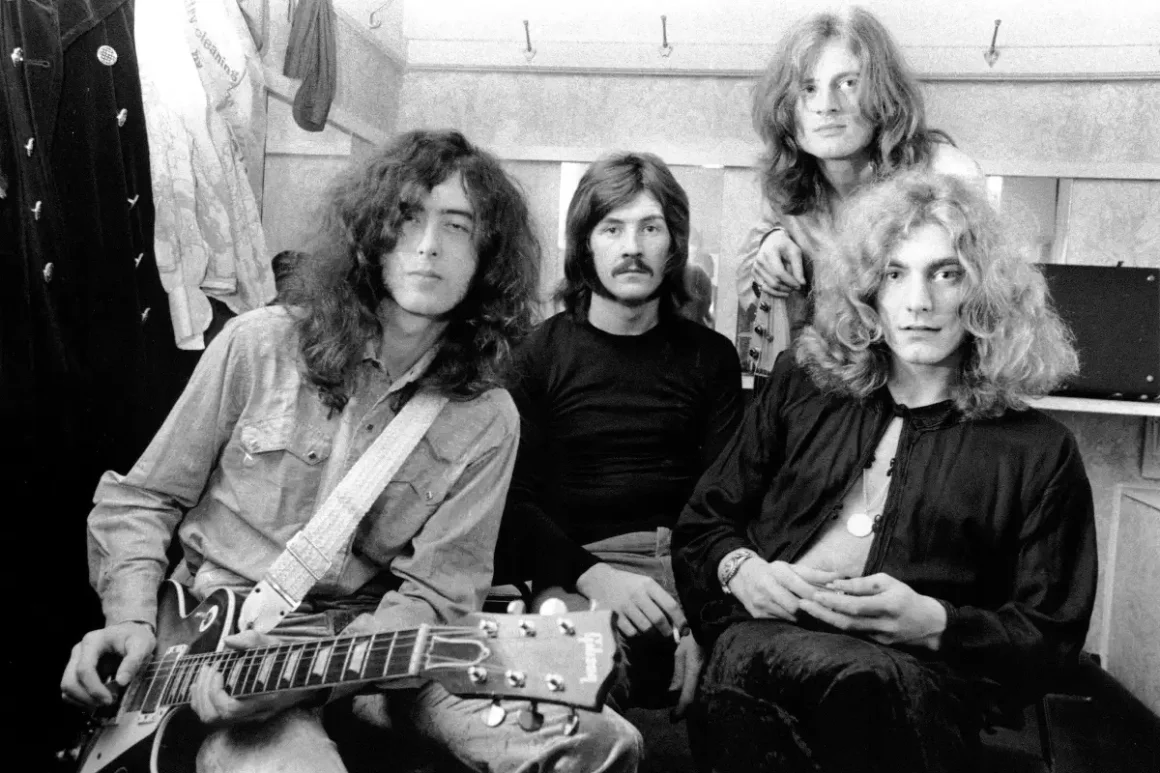Led Zeppelin is an undeniable titan of progressive rock, having left an indelible mark on the music scene. However, beneath the gleaming exterior of their illustrious career lies a period of experimentation that sparked controversy only two years after the monumental success of “Stairway To Heaven.” The year was 1973, and the album was titled “Houses Of The Holy.”
Among the signature heavy rocking sound that defined Led Zeppelin, there emerged an audacious attempt at something different: “Dye’r Maker.” This unconventional venture began as a whimsical idea during a reggae listening session, accompanied by a challenge to John Bonham, the renowned drummer, who mocked accusations of inability to master reggae time.
What followed was a poor imitation of the reggae genre, with Robert Plant’s vocals meandering lazily across the track like laundry hung out to dry in the autumn breeze. The song used a generic chord progression reminiscent of 1950s doo-wop, which was briefly catchy but lacked the depth to maintain long-term interest. Notably, even John Paul Jones, a key member of the band, expressed disappointment with the song’s haphazard development, casting doubt on its eventual release.
The reaction within the Led Zeppelin camp was negative, with the lessons learned from this musical diversion outweighing any potential benefits. Despite the band’s reservations, the American audience embraced “Dye’r Maker” with a warmth that defied their expectations.
Despite this minor setback, Led Zeppelin steadfastly returned to their musical roots in subsequent albums, reinforcing their dedication to their distinct sound. In the grand tapestry of Led Zeppelin’s extensive catalogue, “Dye’r Maker” stands out as a strange footnote, a brief departure from the norm in a legendary career marked by innovation and resilience.








